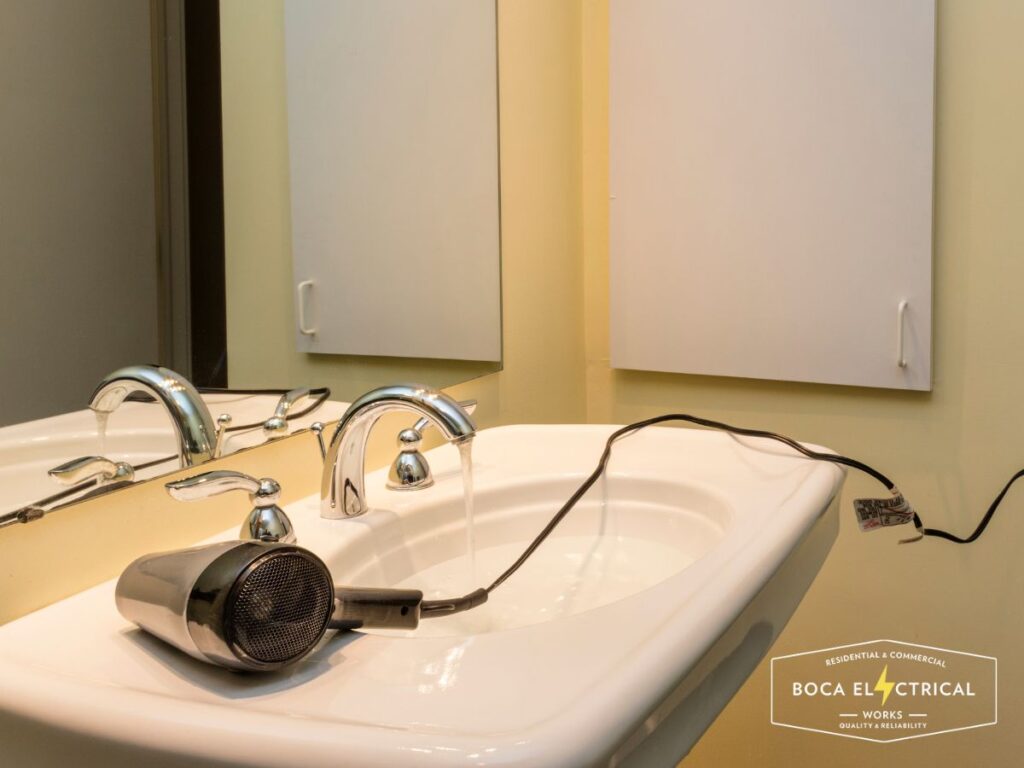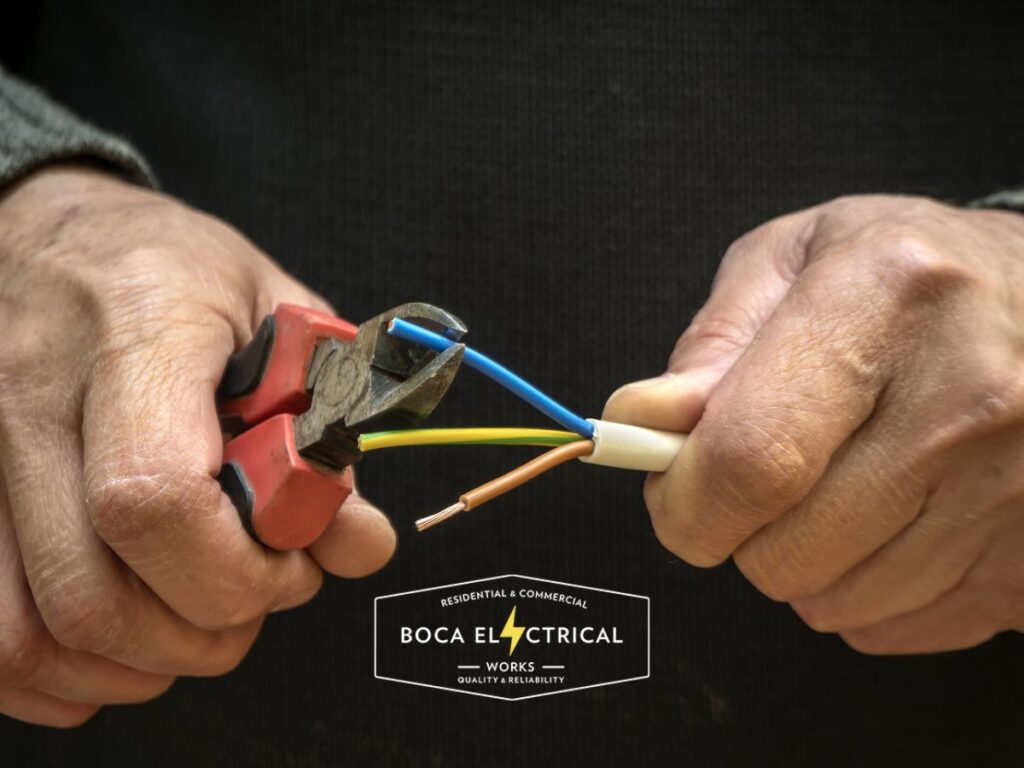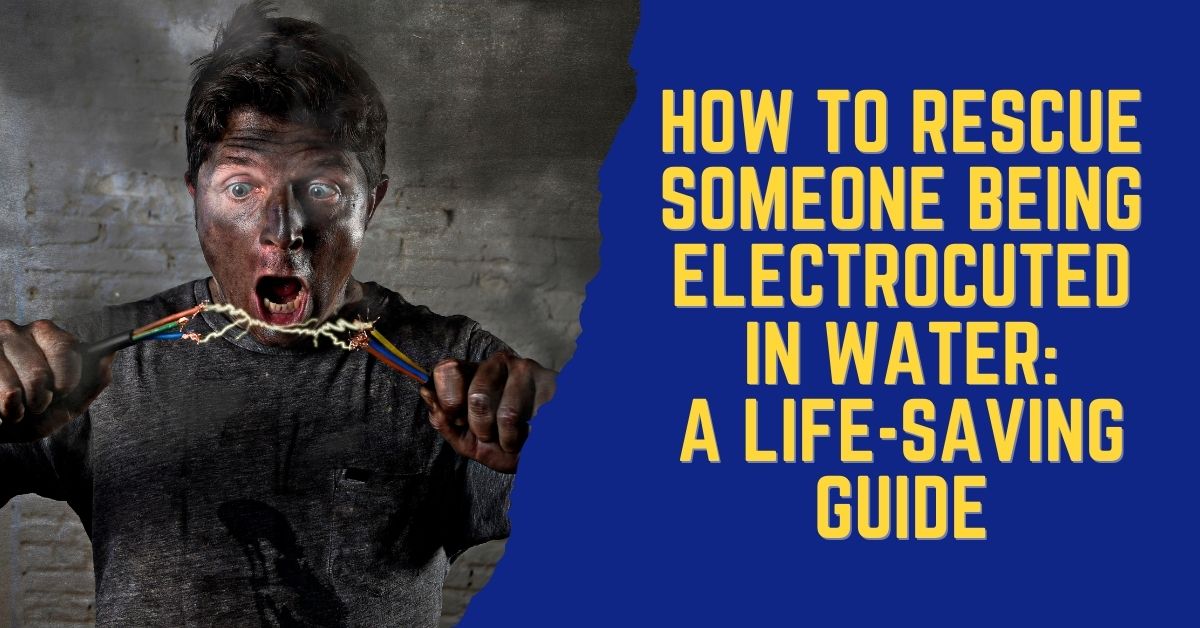Did you know that water enhances electrical conductivity, making an already dangerous situation even more perilous? Understanding how to rescue someone being electrocuted in water is not just crucial—it could be life-saving. This guide is designed to equip you with the knowledge and steps necessary to safely handle such emergencies, emphasizing the critical balance between urgency and personal safety.
In this article, we will delve into the immediate actions required to rescue someone from electrocution in water, including the importance of disconnecting the power source, utilizing non-conductive materials for rescue, and the essentials of administering first aid. We’ll also cover preventive measures to avoid such situations, highlighting the need for awareness around electrical safety in environments where water is present.
Our conversational guide aims to make this vital information accessible and understandable, steering clear of technical jargon that might overwhelm. By the end of this read, you’ll not only grasp the steps to effectively respond to an electrocution incident in water but also understand the significance of quick and informed action. Keep reading to ensure you’re prepared to make a difference when seconds count.

Conductivity of Water: A Perilous Path for Electricity
Water’s remarkable ability to conduct electricity places it at the forefront of potential hazards in environments where it can come into contact with electrical systems. This inherent property of water, primarily due to the minerals and impurities it contains, transforms it into a dangerous conduit for electricity.
Understanding this critical aspect is essential for implementing effective safety measures in homes and commercial spaces.
- Electrical Conductivity: Water conducts electricity when impurities, such as salts and minerals, are present, making it a potent electrical conductor.
- Path of Least Resistance: Electrical currents seek the easiest route to complete their circuit; when water is involved, it often becomes that path, leading to increased risks of electrocution and equipment damage.
- Safety Measures: Installing Ground Fault Circuit Interrupters (GFCIs) and ensuring electrical systems are correctly insulated and waterproofed can significantly mitigate these risks.
Incorporating safety protocols and regular maintenance can prevent water-related electrical hazards, protecting both property and lives. Familiarity with terms like “GFCI protection,” “electrical grounding,” and “waterproof enclosures” is crucial for anyone responsible for maintaining safe electrical systems in potentially wet environments.
The Human Body as a Conductor: Heightening the Risk of Electric Shock
The conductivity of the human body significantly increases the danger of electric shock, particularly in environments where water is present.
Given that the human body is comprised largely of water, it naturally conducts electricity, making scenarios involving water and electricity especially perilous.
- Biological Conductivity: The high water content in the human body facilitates the conduction of electricity, heightening the risk of electric shock in wet conditions.
- Risk Scenarios: Situations such as using electrical appliances with wet hands or standing on damp floors increase the likelihood of electric shock incidents.
- Preventive Measures: Employing non-conductive tools, wearing rubber-soled shoes, and ensuring all electrical equipment is properly grounded can significantly reduce these risks.
Awareness and adherence to safety measures are critical in preventing electric shock, especially in residential areas like bathrooms and kitchens where water and electricity are often in close proximity. Terms like “electrical insulation,” “personal protective equipment (PPE),” and “safety standards” underscore the importance of a well-informed approach to electrical safety.
Short Circuits, Fires, and Corrosion: Hidden Threats Unveiled
Water’s interaction with electrical systems can lead to short circuits, fires, and corrosion—each posing significant threats to safety and property. The mechanisms behind these phenomena are crucial for developing preventative strategies.
- Short Circuits: When water breaches electrical insulation, it can cause short circuits, abruptly connecting electrical components and leading to potential fires or appliance damage.
- Electrical Fires: Short circuits in the presence of water can generate sparks or heat, igniting fires, especially in environments with faulty wiring or overloaded circuits.
- Corrosion: Continuous exposure to water can corrode electrical components, weakening their integrity and functionality over time, thereby increasing the risk of malfunctions.
Implementing waterproof measures, conducting regular inspections, and applying anti-corrosive treatments are effective strategies to combat these risks. Understanding terms like “electrical maintenance,” “circuit protection,” and “corrosion resistance” is vital for ensuring long-term safety and reliability of electrical systems.
Common Scenarios Where Water and Electricity Intersect
Identifying common scenarios where water and electricity meet is the first step in preventing potential hazards. Awareness of these scenarios enables individuals and professionals to take proactive measures to ensure safety.
Bathrooms: A Hub of Hygiene with Hidden Risks
- Install waterproof fixtures and GFCI outlets.
- Regularly inspect electrical appliances for damage.
Kitchens: Culinary Creativity with Electrical Challenges
- Ensure safe use of appliances near water sources.
- Promptly address spills and leaks.
Pool Areas: Leisure with a Splash of Caution
- Utilize waterproof lighting and pool equipment.
- Conduct routine electrical safety checks.
Outdoor Spaces: Nature’s Beauty with Electrical Considerations
- Implement weatherproof electrical installations.
- Ensure proper grounding of outdoor electrical systems.
Industrial Settings: High Stakes with Complex Interactions
- Adhere to industrial safety standards and protocols.
- Regularly train staff on electrical safety practices.
In each of these environments, adopting specific safety measures and being conversant with terms like “IP ratings,” “electrical safety audits,” and “water-resistant materials” can significantly reduce the risks associated with the intersection of water and electricity.
How to Rescue Someone Being Electrocuted in Water
Rescuing someone being electrocuted in water requires immediate action but also demands caution to prevent putting yourself in danger. Here is a step-by-step procedure to safely manage such a critical situation:
Step 1: Do Not Directly Touch the Person or Enter the Water
- Understanding the Risk: Water conducts electricity, making it dangerous to touch the person or enter the water yourself. You risk becoming another victim of electrocution.
Step 2: Disconnect the Power Source Immediately
- Shutting Off Power: If possible, quickly turn off the power at the main breaker or disconnect the appliance causing the electrocution. This is the safest way to help the victim.
Step 3: Call for Emergency Help
- Seeking Professional Assistance: Dial emergency services immediately. Inform them that it is an electrocution incident. Provide specific details about the location and the current situation.
Step 4: Use a Non-Conductive Object to Rescue the Person
- Safe Rescue Techniques: If you cannot turn off the power, use a non-conductive object like a wooden stick, plastic, or rubber to drag the person away from the source of electricity. Ensure you are standing on a dry, non-conductive surface.
Step 5: Provide Immediate First Aid
- Administering First Aid: Once the person is away from the source of electricity and it is safe:
- Check if they are breathing or have a pulse.
- If trained, perform CPR if necessary.
- Do not move the person unnecessarily to avoid further injury, especially if you suspect spinal injuries, unless there is an immediate danger.
Step 6: Await Emergency Services
- Staying Put: Keep the victim as still as possible. Cover them with a blanket to retain body heat if they are in shock but ensure it’s not wet. Do not give them anything to eat or drink.
Step 7: Follow-Up
- Medical Evaluation: Even if the victim seems to recover, it’s crucial they are seen by a healthcare professional to assess and treat any potential internal injuries or effects of the electric shock.
Safety Precautions:
- Preventive Measures: Always ensure electrical appliances and outlets near water are properly insulated and protected with a Ground Fault Circuit Interrupter (GFCI).
- Awareness and Education: Educate yourself and others about the dangers of electricity, especially near water, and learn basic first aid and CPR.
Knowing how to rescue someone being electrocuted in water can save lives, but the key is to act safely to ensure you don’t become a victim too. Always prioritize calling for professional help and use non-conductive materials if you must perform a rescue. Regularly check and maintain electrical devices near water to prevent such accidents.
How Can You Prevent Water-Electricity Accidents?
Ensuring safety in environments where water and electricity intersect requires a proactive approach and adherence to best practices. Below, we present practical tips and safety procedures to help you safeguard against accidents and create a secure living and working space.

- Proper Wiring: The Backbone of Electrical Safety
-
-
- Regularly inspect and maintain your home or business wiring to identify and address any issues promptly.
-
- Appliance Handling: Exercise Caution at Every Step
-
-
- Keep electrical appliances away from water sources, and never operate them with wet hands.
- Unplug appliances when not in use, especially in areas susceptible to water spills or leaks.
-
- Environment Awareness: Know Your Surroundings
-
-
- Be conscious of water sources near electrical outlets and appliances, and take preventive measures to minimize potential contact.
-
- Proper Grounding: Enhancing Electrical Stability
-
-
- Ensure that your electrical system is properly grounded to reduce the risk of electrical shock and fire hazards.
-
- Regular Inspections: A Crucial Maintenance Ritual
-
- Conduct routine inspections of areas where water and electricity meet, such as bathrooms, kitchens, and utility rooms.
How to Enhance Electrical Safety Around Water in Homes and Businesses?
Ensuring electrical safety around water is critical for safeguarding against potential hazards. In settings where water is prevalent, and electrical systems are extensive, proactive steps are essential for safety.
Here’s how to enhance your measures effectively:
- Regular Inspection and Maintenance: Maintenance of electrical systems in areas prone to moisture is crucial. Annual inspections by certified electricians and immediate repairs of any damage are key to preventing electrical hazards.
- Installation of Ground Fault Circuit Interrupters (GFCIs): GFCIs are essential for preventing electric shock by cutting off power when imbalances are detected. Install GFCIs in wet areas and test them regularly to ensure functionality.
- Use of Moisture-Resistant Wiring and Equipment: Select wiring and electrical equipment designed for damp environments to reduce the risk of short circuits and other electrical issues. Consult with professionals to choose suitable materials.
- Ensure Proper Grounding: Proper grounding provides a safe path for excess electricity. Verify all electrical installations are grounded and regularly check grounding systems.
- Educate Occupants on Safety Practices: Inform all occupants about electrical safety risks and practices. Provide training sessions and post safety reminders in key areas.
- Emergency Response Plan: Develop an accessible plan for electrical emergencies to minimize damage and injuries. Include emergency contact information and clear action steps.
How Do Professionals Handle Water-Electricity Hazards?
Professionals at Boca Electrical employ a comprehensive approach to manage risks, emphasizing safety protocols and expertise:
- Thorough Risk Assessment: Comprehensive evaluations of premises to identify risks and vulnerabilities are the first step in formulating a safety strategy, utilizing diagnostic tools and assessing electrical systems’ interaction with water.
- Precision in Wiring and Installations: Using moisture-resistant materials and precise installation techniques ensures the safety and durability of electrical systems, with a focus on high-quality materials and adherence to wiring standards.
- Implementation of GFCIs: Strategic placement of GFCIs provides protection in wet areas, with regular testing and maintenance to ensure they function correctly.
- Adherence to Safety Codes: Following local and national electrical safety codes guarantees that installations meet the highest standards, with continuous updates based on new regulations.
- Regular Maintenance and Inspections: Routine checks identify potential issues early, focusing on areas of potential water exposure and preventive maintenance to address concerns.
Why Is It Important to Have a Professional Electrician Assess Your Home or Business?
Professional electricians bring expertise and experience crucial for maintaining a safe environment:
- Identifying Hidden Hazards: Professionals use advanced techniques to uncover potential dangers, providing early detection of issues and recommendations for corrective actions.
- Mitigating Potential Risks: Customized solutions based on the unique aspects of your property significantly reduce electrical accident risks, with targeted interventions for safety.
- Ensuring Code Compliance: Adherence to electrical codes is a legal requirement and practical safety measure, preventing hazards and ensuring systems are up to current standards.
- Enhancing Overall Safety: Regular assessments by professionals contribute to a safer environment, offering peace of mind and reducing the risk of electrical accidents.
How Can Boca Electrical Works Help?
Boca Electrical Works stands at the forefront of ensuring electrical safety, especially in environments where water and electricity intersect. Our commitment to safety is reflected in our comprehensive range of services designed to mitigate risks and protect your home or business.
Here’s how we can assist:
- Expert Risk Assessments: Our team of certified electricians conducts in-depth risk assessments to identify potential electrical hazards in your property. Utilizing the latest diagnostic tools and techniques, we offer personalized evaluations to ensure your environment is safe and compliant with the latest safety standards.
- Customized Safety Solutions: Recognizing that every home and business has unique electrical needs, we provide tailored solutions that address specific risks associated with water and electricity.
From the installation of state-of-the-art GFCIs to the deployment of moisture-resistant wiring systems, our customized approach ensures optimal safety.
- Professional Installations and Upgrades: Whether it’s upgrading your existing electrical system or installing new components, Boca Electrical Works prioritizes precision and quality. Our expertise in moisture-resistant technologies and grounding techniques enhances the safety and durability of your electrical installations.
- Educational Initiatives: We believe in empowering our clients with knowledge. Boca Electrical Works offers educational programs and resources to inform property owners about electrical safety practices. By educating occupants on how to recognize and respond to potential hazards, we foster a culture of safety.
- Ongoing Maintenance and Support: Our relationship with clients doesn’t end with the completion of a project. We offer ongoing maintenance and support services to ensure your electrical systems continue to operate safely and efficiently. Regular inspections and timely interventions help prevent electrical issues before they become serious hazards.
- Emergency Response: Understanding the urgency of electrical emergencies, especially those involving water, Boca Electrical Works provides swift emergency response services. Our team is ready to address and resolve electrical issues, ensuring minimal disruption and maximum safety.
At Boca Electrical Works, our goal is to offer peace of mind through professional, reliable electrical services that adhere to the highest standards of safety and excellence. By partnering with us, you gain access to a wealth of expertise and a commitment to ensuring your property is safe from the risks associated with water and electricity.
Conclusion
In concluding our guide on how to rescue someone being electrocuted in water, we emphasize the paramount importance of your safety and preparedness. We’ve explored the critical steps for a safe rescue, from cutting off the power supply to safely approaching and assisting the victim, alongside the vital role of preventive measures and the necessity for prompt professional intervention.
At Boca Electrical Works, ensuring your safety in situations where water meets electricity is at the core of what we do. Armed with knowledge and the right approach, you can prevent accidents and respond effectively should an emergency arise. Remember, our team of expert electricians is always ready to provide assessments and emergency services, ensuring your environment is safe and secure. Let’s prioritize safety together, ensuring peace of mind through informed action and professional support.
Ensure Your Safety with Boca Electrical Works
At Boca Electrical Works, located in the heart of Boca Raton, FL, we understand the critical importance of safeguarding your home and business from the unique risks posed by the combination of water and electricity. With over 38 years of combined experience, our family-owned and operated team specializes in a comprehensive range of electrical services tailored to meet the needs of both residential and commercial clients in Palm Beach and Broward Counties.
From essential residential electrical services to specialized commercial electrical solutions, ceiling fan reinstallations, surge protector installations, chandelier installations, and electrical panel upgrades, our expertise is designed to address every electrical need with precision and care. For personalized, expert electrical services that you can trust, reach out to us at +1 561-235-2513 or visit us at 158 NW 16th St #2, Boca Raton, FL 33432, United States.
Let Boca Electrical Works be your partner in ensuring a safer and more secure environment. Contact us today to learn more about how our services can benefit you.



